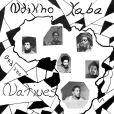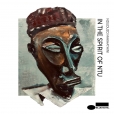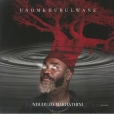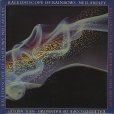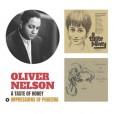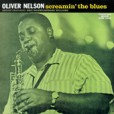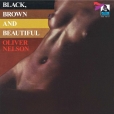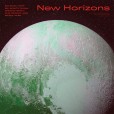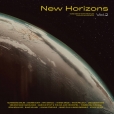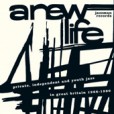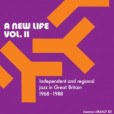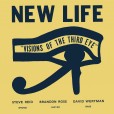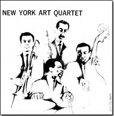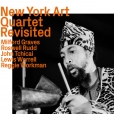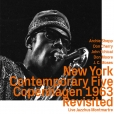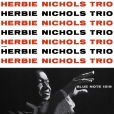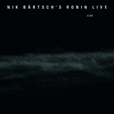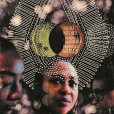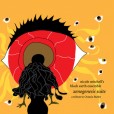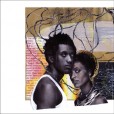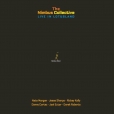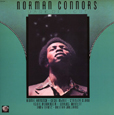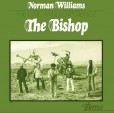Your basket is empty

‘Ndegeocello’s second Blue Note pays homage to the great writer and activist James Baldwin. Her transformative music and collaborative spirit ignites this genre-bending work that is at once a musical experience, a church service, a celebration, a testimonial, and a call to action. Features frequent collaborators Justin Hicks, Kenita Miller, Abe Rounds, Jake Sherman, Jebin Bruni, and Julius Rodriguez, as well as powerful spoken word performances by Jamaican poet and activist Staceyann Chin.’
Ndikho Xaba was born in 1934 in Pietermaritzburg, KZN, South Africa: for thirty-four years — 1964 –1998 — he lived in exile in the US, Canada and Tanzania. Originally issued by Trilyte Records out of Oakland, California, this 1970 recording is bracing, freewheeling Now Thing, suffused with SA idioms, and focussed by a political urgency wiring together US Black Power, Black Aesthetics and the anti-apartheid front-line like nothing else. You can hear Trane from the off — ‘a spiritual offering to my ancestors’ — and plenty of Sun Ra, with whom The Natives several times shared double-bills. Freedom is a gutbucket-soul rendition of the people’s anthem; that’s Plunky from the Oneness Of Juju playing saxophone on Nomusa; the thunderous finale features drummer Keita from the West Indies, and Baba Duru, who studied percussion in India, before winding up with Xaba blowing eerily through a horn made from a giant piece of tubular seaweed.
The pianist’s tenth studio album — the very first release on the newly formed imprint Blue Note Africa — ‘pulls his most foundational cultural Influences into a space where the sounds of the South African landscape are placed at the center of the nation’s evolving jazz songbook. A central figure of the country’s vibrant jazz scene, Makhathini assembled a band consisting of some of South Africa’s most exciting young musicians including saxophonist Linda Sikhakhane, trumpeter Robin Fassie Kock, vibraphonist Dylan Tabisher, bassist Stephen de Souza, percussionist Gontse Makhene, and drummer Dane Paris, as well as guest vocalists Omagugu Makhathini and Anna Widauer, and America saxophonist Jaleel Shaw.’
‘Admirers of Shabaka & The Ancestors will recognise a similarly incantatory vibe. And if that listener is also familiar, as is likely, with Pharoah Sanders and Azar Lawrence (with whom Makhathini has also played), they will hear those resonances, too… traditions, particularly of South African folk and ritual music, play a major part. African America is also in the mix, through Randy Weston and Don Pullen…’ (Chris May, All About Jazz).
With Eric Dolphy, Richard Williams, Roy Haynes and George Duvivier in 1960, Van Gelder at the controls.
‘Originally released in 1970, Black, Brown and Beautiful saw legendary composer and arranger Oliver Nelson musically address the state of black America in the wake of the assassination of Martin Luther King. Tracks like Requiem, Lamb Of God and Martin Was A Man, A Real Man directly address the passing of King, whereas Self Help Is Needed and I Hope In Time A Change Will Come passionately ask questions still unanswered today.
“I have always felt that the Federal Government wasn’t going to do a damn thing and American Blacks were going to have to do it themselves. However, you can’t have a foot on your neck making it impossible for you to help yourself. That seems logical – doesn’t it?”
‘Musically, this is a sumptuous big band banquet with Nelson himself talking the soprano sax solo on the aching I Hope In Time A Change Will Come. Those who are fans of classic Nelson albums like The Blues And The Abstract Truth (1961) and the equally polemical The Mayor And The People (1971) will find much to enjoy here.’
‘From the trios of pianists Kyle Shepherd, Bokani Dyer and Yonela Mnana, to the genre-defying exploits of guitarists Vuma Levin and Reza Khota; and from artists inspired by age-old traditions, like Lwanda Gogwana and Mandisi Dyantyis, to the cosmic explorations of Siya Makuzeni, Benjamin Jephta, Thandi Ntuli, Zoë Modiga and Shane Cooper’s Mabuta’ — Johannesburg label Afrosynth rounds up some of SA’s most talented young composers and bandleaders, as well as a wider cast of supporting musicians.
A fresh survey of post-bop, outsider British jazz labels and musicians: obscure gems, from the time-bending spirit music of London’s Lori Vambe to the psych-jazz of Birmingham’s Poliphony, via Spot The Zebra’s jazz dedication to David Attenborough and Indiana Highway’s modal Christmas carolling.
Milford Graves (percussion), Leroi Jones (vocals), Roswell Rudd (trombone), John Tchicai (alto saxophone), Lewis Worrell (bass).
Strikingly original, still: open and untethered, dreamily ramshackle and provisional, dazzlingly polyphonic.
‘All that is solid melts into air,’ as Marx puts it; ‘all that is holy is profaned, and man is at last compelled to face with sober senses his real conditions of life, and his relations with his kind.’
Tracks 1-4 comprised the eponymous release on ESP in 1964: Roswell Rudd, John Tchicai, Lewis Worrell, Milford Graves, with a walk-on by Leroi Jones (reciting Black Dada Nihilismus).
Tracks 5-9 were released on Fontana the following year, as Mohawk: Roswell Rudd, John Tchicai, Reggie Workman, Milford Graves.
The return of the AACM flautist to the visionary, Afro-futurist science fiction of Octavia Butler, alongside theremin-player Harris, together with fellow Chicago luminaries like cellist Tomeka Reid and trumpeter Ben LaMar Gay.
Tumultuous, visceral musical reflections on Butler’s ideas about Apocalypse, power, hybridity-versus-identity, race and feminism. ‘Writing myself in,’ she called it.
With Stanley Clarke, Cecil McBee, Eddie Henderson, Carlos Garnett, Gary Bartz and Buster Williams.
A 1976 recording by this mainstay of the San Francisco jazz scene across the decades, who played with everyone from Sonny Stitt to Pharoah Sanders.
A message from Eddie Henderson…
‘It’s time. It’s time for all to hear the Bishop proclaim spiritual truths in his church, the One Mind Temple, dedicated to the spirit of John Coltrane. The time is also overdue for all to hear the Bishop proclaim musical truths through the medium of his alto saxophone. My first few gigs in 1962 were with the Bishop’s band. I’ll never forget what an inspiration it was for me learning how to play while standing next to the Bishop, who already had it together. I’m sure after hearing the Bishop, you will also agree that his time has come.’

